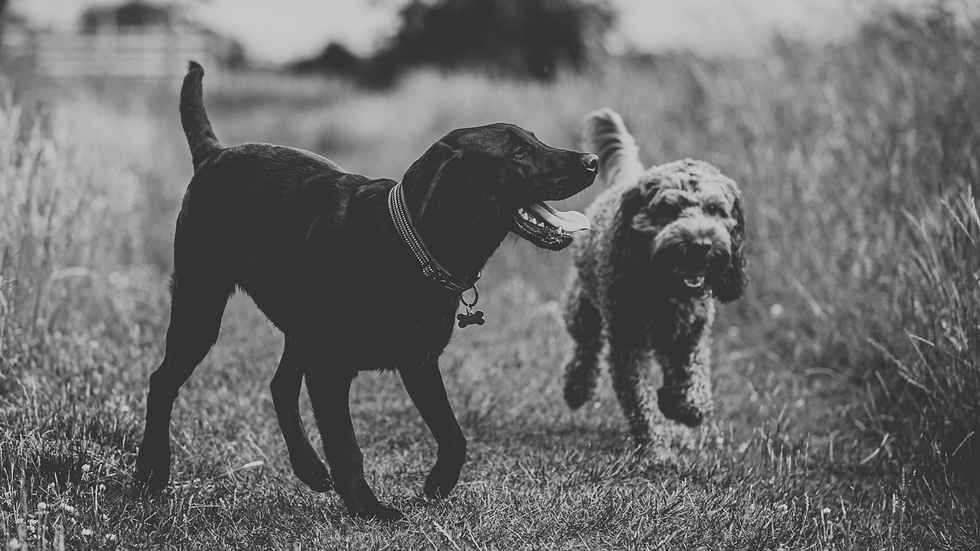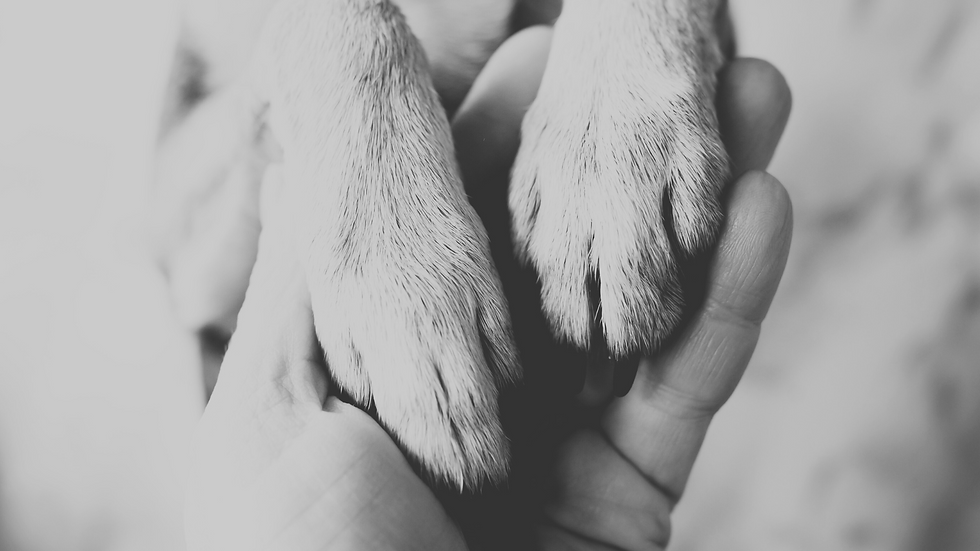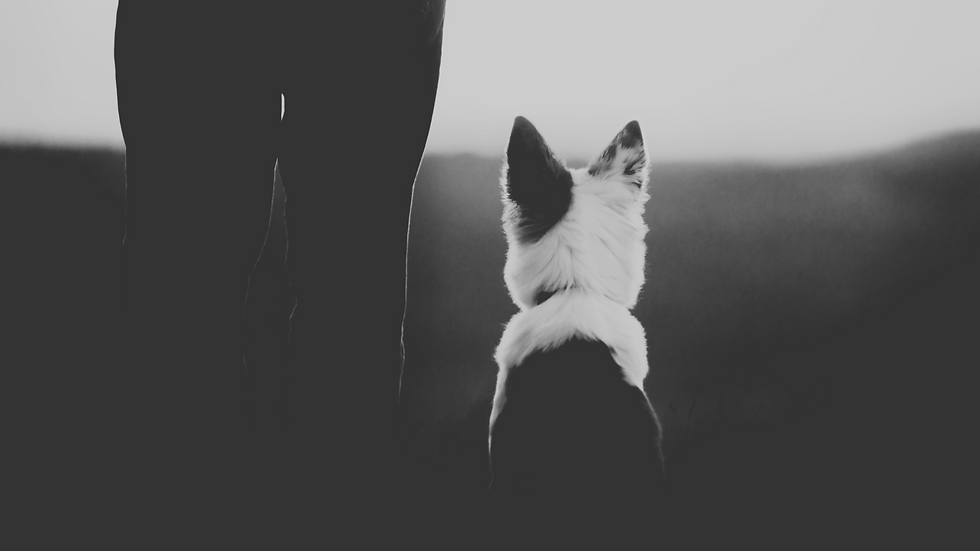What is Enrichment? And Why it's Essential
- May 22, 2024
- 5 min read
Updated: Dec 31
Enrichment has become a big topic in the animal world in the past few decades and a hot topic in the dog world in recent years. When enrichment comes to mind, we often envision snuffle mats, interactive puzzle toys, lick mats, and fillable food toys. While this isn't far off, we are focusing only on a small part of the picture.

Enrichment Defined
A simple Google search will tell you that enrichment is defined as "the act or process of improving the quality of something by adding something else". This can be applied to dogs as "fulfilling our dog's needs to improve their quality of life, ensuring their physical, mental and behavioural health".
From this definition, you can easily see that snuffle mats, interactive puzzle toys, lick mats, and fillable food toys only cover a minute portion of that. For our dogs to have fully enriched lives, we need to provide them with other things as well.
To make enrichment easier to digest and ensure all needs are being met, it can be broken down into six categories:
Health & Hygiene
Safety & Security
Environment Essentials
Canine Conduct
Interactions & Independence
Body & Brain
Health & Hygiene
This category refers to all aspects of your dog's health, such as regular vet visits, staying up to date on their vaccinations, ensuring they have a proper diet, and regular grooming and dental cleanings.
Safety & Security
This category focuses on your dog's need to be and feel safe. Although these concepts are similar, one does not automatically guarantee the other. It is essential to ensure that your dog is free from any danger and has a place where they feel secure.
Environment Essentials
This category refers to your dog's environment and all its requirements to meet your dog's needs. This includes:
access to necessities like food, water, shelter, and the bathroom
opportunities to engage in dog-like behaviours
a consistent and predictable routine
minimal stress or stressors
a quiet and relaxing place to sleep
Canine Conduct
This category refers to your dog having opportunities to engage in dog-like behaviours, so they have a chance to be a dog in a safe and appropriate manner. These behaviours include but are not limited to: digging, sniffing, foraging, licking, chewing, shredding, barking, and chasing.
Interactions & Independence
This category refers to your dog having the opportunity to engage in positive social interactions and having time to relax and be able to be alone.
Body & Brain
This category refers to your dog's need for both physical and mental exercise. One does not replace another; both are required to ensure your dog is happy and healthy.
When the needs of each category are met, your dog will begin to show fewer outbursts or concerning behaviours because they are physically, mentally, and behaviourally satisfied. Because of this, we should be focusing on behavioural struggles or concerns with an enrichment mindset first, rather than just jumping right into training.

Changing Our Mindset
Bringing enrichment to the forefront of dog behaviour and training changes our mindset to focus on the underlying foundation of behaviour struggles rather than the symptoms we are seeing. If we were to focus on training the problem away first, we would most likely see the symptoms persist, or our dog's frustration pop up in different ways because we are focusing on the symptoms and not the underlying cause. Once all of our dog's needs are being met, we can then add in training life skills to supplement our dog's daily life.
To give an example, let's say you have a dog that is having accidents in the house. Your first instinct may be to go back to the fundamentals of house training. You go back to square one and restart the house training process by taking your dog outside every hour and rewarding them when they go. But the accidents persist. You begin to get frustrated at your dog, they know that they have to go outside and they should know better. Out of frustration, you hire a trainer to help. The trainer will notice that your dog was previously house-trained and their accidents were sudden and seemed to come out of nowhere. They suggest taking your dog to the vet to check out the concern to make sure they have nothing wrong medically. Turns out that your dog has a bladder infection, causing them to have accidents in the house.
In this example, had we looked at the behaviour change from an enrichment point of view by looking into your dog's health first, rather than a training one, it would have caused both you and your dog a lot less stress, pain and frustration.

Improving Our Relationship
When we look at behavioural struggles through an enrichment lens first, we show our dogs that we understand them and are there to take care of them. It builds and strengthens your relationship through trust and respect for one another.
To fully meet your dog's needs, you must know how they communicate and what their unique and specific needs are. When you understand how they communicate, you can tell when they are asking for a specific need at any given moment. Then knowing their individualistic needs, you can meet those needs in a way that suits them best.
For example, you are out on a walk with your dog and they start acting strange. Their body is lowered, their ears are back, their tail is tucked and they are licking their lips. From previous experience, you know that this means that your dog is uncomfortable and fearful of something in their environment. Up ahead in the distance, you notice a person riding a bike. Knowing that your dog is afraid of bikes, you turn and begin to walk in a different direction to gain space. As you both gather more distance, you notice your dog's body begin to loosen and their tail begins to untuck.
In this situation, you read your dog's body language and noticed that they were telling you that they were uncomfortable. Because you knew that your dog struggles with bikes, you gained distance to make them feel comfortable again, letting them know you understand them and know what they need. These actions gave your dog a great deal of trust in you, knowing that they can look to you for guidance and support, really solidifying your relationship.

Enrichment First
Going forward, we need to ensure that enrichment is always at the forefront of our minds when it comes to our dogs. It is essential for our dog's well-being, as well as the relationship between us and our dogs. It should not be ignored, dismissed or set aside.
Follow clicked canine for more information to help make canine behaviour click!
